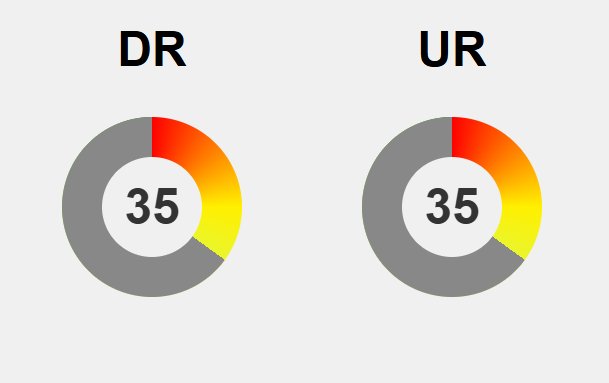In workplaces where criticism is overly harsh or unbalanced, trust and morale can quickly erode, creating a toxic environment that stifles growth and collaboration. While constructive feedback can inspire improvement, relentless focus on faults without acknowledgment of effort turns feedback into a weapon rather than a tool for development. What drives this damaging behavior? It often stems from personality traits like perfectionism, insecurity, or narcissism, compounded by organizational cultures that reward competition over cooperation. Balancing honesty with kindness is a delicate challenge—too blunt, and relationships suffer; too lenient, and growth stalls. But how can organizations foster respectful, effective communication? The answer lies in establishing clear standards, investing in emotional intelligence training, and modeling respectful dialogue from leadership downward. By addressing root causes and promoting transparency, workplaces can transform critical interactions into opportunities for trust-building, innovation, and sustained employee engagement—ultimately creating a healthier, more resilient culture.
The Power and Pitfalls of Workplace Feedback
Feedback is a cornerstone of a healthy workplace. When delivered thoughtfully, it helps teams understand what’s working and where improvements are needed, fostering growth and clarity. Constructive criticism can motivate employees, clarify expectations, and guide development. But not all feedback is helpful. When criticism veers into negativity—focused only on flaws or mistakes—it can quickly turn toxic, undermining morale and trust.
Negative feedback that lacks balance and respect can cause lasting damage. Employees who feel constantly criticized without recognition for their efforts may start to feel undervalued and demoralized. Over time, this can lead to disengagement, where workers become less motivated to contribute or share ideas. A workplace filled with persistent negativity doesn’t just affect individual confidence; it hampers collaboration and creativity, stifling overall progress.
Trust in leadership also takes a hit when feedback becomes overly harsh or personal. Managers or colleagues who habitually focus on faults, especially in a manner that feels unfair or dismissive, create an environment of suspicion and fear. Employees may begin to question whether their efforts are genuinely appreciated or simply subjected to relentless scrutiny. This erosion of trust makes open communication and honest dialogue more difficult, further damaging team cohesion.
The way feedback is delivered makes all the difference. When criticism is specific, respectful, and aimed at behaviors rather than personal traits, it can inspire improvement without damaging relationships. Conversely, vague comments, harsh language, or personal attacks breed defensiveness and resentment. Recognizing these patterns is vital for managers and team members alike to prevent toxicity from taking root and to promote a culture of constructive, respectful communication.
Constant exposure to negative criticism creates a cycle where morale drops, engagement wanes, and trust diminishes. Employees may become reluctant to admit mistakes, share ideas, or take risks, fearing harsh judgment. This environment not only hampers individual growth but also stifles innovation and can push talented people to seek healthier workplaces elsewhere. Building a culture of balanced feedback isn’t just beneficial—it’s essential for long-term success.
Uncovering the Roots of Toxic Criticism
Toxic feedback often stems from underlying personality traits and workplace cultures that encourage or tolerate harsh criticism. Perfectionists, for example, tend to focus intensely on flaws, sometimes nitpicking minor errors out of a desire for excellence. Their high standards can inadvertently lead to overly critical comments that discourage rather than motivate, especially when they overlook achievements or effort. Similarly, individuals battling insecurity may criticize others excessively to mask their own self-doubts, seeking validation or control through scrutiny.
Narcissistic tendencies also contribute to toxic feedback. Those with narcissistic traits often view criticism as a threat to their self-image and respond defensively or dismissively. Instead of aiming to support or develop colleagues, they seek to assert dominance, which fosters resentment and defensiveness in others. This behavior can quickly escalate into a cycle where negativity becomes the norm, eroding trust and collaboration.
Organizational culture plays a significant role in shaping feedback dynamics. Workplaces that reward competition over cooperation, or where managerial authority is wielded aggressively, tend to normalize harsh words and personal attacks. When power imbalances are unchecked, managers or senior staff might resort to overly critical remarks, often unintentionally, which set a tone that toxicity is acceptable. Over time, such environments breed a climate where disrespectful communication becomes routine, making it difficult for employees to feel safe or valued.
A lack of clarity and transparency further fuels toxicity. When standards for respectful communication are absent or poorly enforced, personal attacks and vague criticism flourish. Employees can become disillusioned, feeling that their efforts are undervalued or misunderstood, which discourages openness and honest feedback. This environment discourages mistakes from being seen as learning opportunities, instead framing them as failures to be punished.
Power dynamics deepen these issues. When managers or senior staff use their authority to belittle or demean, lower-ranking employees often hesitate to speak up or admit errors. This suppression of honest dialogue hampers growth and reinforces negative patterns. As toxicity becomes embedded in daily interactions, it becomes harder to break the cycle without deliberate cultural change.
Personality traits and organizational norms intersect, creating a fertile ground for harmful criticism. Recognizing these roots helps organizations target the real issues rather than just symptoms. Addressing them requires cultivating self-awareness, promoting empathy, and establishing clear standards for respectful communication. Without these efforts, toxic feedback will persist, undermining trust and morale at every level.
Navigating the Tough Balance Between Honesty and Morality
Balancing honest feedback with the need to preserve morale is one of the toughest challenges in workplace communication. On one hand, transparency and directness are vital for growth. Clear, truthful feedback helps employees understand their strengths and pinpoint areas for improvement, fostering accountability and development. On the other hand, if that honesty crosses the line into bluntness or harsh criticism, it risks damaging relationships, lowering confidence, and breeding resentment.
Some managers worry that softening their messages might dilute the truth, believing employees need complete honesty to grow. But overly blunt or negative comments can backfire, making staff feel attacked instead of supported. When criticism lacks tact, it often triggers defensiveness and discourages open dialogue, which are essential for collaboration and innovation.
Perceptions of feedback vary widely among individuals. What one person finds helpful and motivating, another may see as unfair or hurtful. Cultural differences, personality styles, and personal sensitivities all shape these perceptions. Skilled managers recognize these differences and adapt their approach—being honest while also showing empathy. Timing and tone are crucial; delivering tough messages thoughtfully helps maintain respect and trust.
Organizational priorities add another layer of complexity. Companies focused on results and accountability often push managers toward more demanding and direct styles. Yet, they also recognize that negativity and toxicity undermine long-term performance. Striking the right balance involves cultivating a culture that values honesty but also upholds respect. Leaders who model this balanced approach set a tone that constructive feedback is about growth, not punishment.
Handling difficult conversations with care doesn’t mean avoiding the truth. Instead, it’s about framing critiques around specific behaviors, acknowledging effort, and focusing on solutions rather than faults. This approach encourages trust, openness, and continuous improvement. It requires practice, but organizations that master it create resilient teams where honesty and kindness work hand in hand.
Ultimately, the goal is to build a feedback environment where employees feel safe to admit mistakes, seek guidance, and share ideas. When honesty is paired with kindness, it transforms workplace interactions from potential sources of conflict into opportunities for development. This balance fosters a culture of trust and respect that benefits everyone, from individual employees to the organization as a whole.
For managers seeking practical strategies to refine their feedback approach, exploring resources on effective communication can be invaluable. One helpful guide is Effective Feedback Strategies, which offers insights into delivering honest comments with empathy and tact. Incorporating these techniques can enhance the overall culture of trust and continuous improvement within your team.
Transforming Knowledge into Action: Building Respectful Feedback Practices
Implementing insights about toxic feedback into everyday workplace practices starts with establishing clear, respectful communication standards. Organizations can develop guidelines that emphasize specific, constructive language, helping everyone focus on behaviors and outcomes rather than personal traits. When these standards are well communicated and consistently reinforced, it becomes easier for managers and employees alike to hold each other accountable and foster a supportive environment.
Training plays a crucial role in shifting the feedback culture. Equipping managers with tools to deliver empathetic, balanced criticism ensures that feedback supports growth rather than discourages. Workshops on emotional intelligence and active listening teach leaders how to recognize tone, timing, and framing, so their comments motivate rather than diminish confidence. When feedback is paired with recognition of effort and progress, it fosters a mindset oriented toward development and improvement.
Creating safe spaces for open dialogue is equally important. Anonymous surveys, suggestion boxes, or regular check-ins allow employees to express concerns about toxicity without fear of retaliation. Addressing issues early prevents negative patterns from becoming ingrained and helps maintain a healthy communication climate. Managers should be evaluated on their communication styles during performance reviews, promoting accountability and emphasizing respectful interactions as a core metric.
Embedding respectful feedback practices into daily routines requires consistency. Regular review of feedback patterns through pulse surveys or team discussions can identify emerging issues before they escalate. Sharing success stories where respectful, constructive critique led to positive outcomes encourages others to follow suit. Over time, these efforts reinforce a culture where honesty and kindness coexist, making toxic criticism less acceptable and less frequent.
Leadership modeling is vital. When managers demonstrate respectful, transparent communication, they set a standard for the entire organization. Recognizing and rewarding respectful behavior reinforces its value, encouraging everyone to adopt healthier feedback habits. Building a culture of trust and mutual respect also involves acknowledging that mistakes are part of growth, and feedback should always aim to support learning rather than punish.
Promoting emotional intelligence across all levels helps sustain these efforts. Encouraging self-awareness and empathy enhances the ability to give and receive feedback effectively. When employees understand how their words affect others, they become more mindful and intentional in their communication, reducing the chances of toxicity creeping into interactions.
Finally, fostering a continuous improvement mindset means regularly revisiting feedback practices and refining them as needed. Organizations that stay attentive to their communication climate and remain committed to respectful dialogue will see long-term benefits: higher engagement, stronger trust, and a more resilient, collaborative workplace where everyone feels valued and motivated to contribute their best.
Cultivating a Culture of Respect: Reflection and Long-Term Growth
Building a culture of respectful feedback is key to fostering trust, boosting morale, and encouraging genuine growth within the workplace. When organizations pay attention to how they deliver critique—favoring clarity, specificity, and kindness—they lay the groundwork for a healthier environment. Recognizing early signs of toxicity, such as vague comments or personal attacks, allows leaders and team members to intervene before negativity takes hold. A balanced approach that highlights achievements alongside constructive suggestions helps create a space where effort is valued and mistakes are seen as opportunities to learn.
Empathy and clear communication are the cornerstones of effective feedback. Leaders who model respectful dialogue and listen actively set the tone for open, honest conversations. When feedback focuses on behaviors rather than personal traits, it supports development without undermining confidence. This approach nurtures a sense of safety and mutual respect, making it easier for employees to admit errors, seek guidance, and share ideas without fear of harsh judgment.
Addressing the deeper roots of toxicity—such as organizational norms, power dynamics, and individual personality traits—requires ongoing effort. Policies that promote transparency, accountability, and kindness help embed respectful communication as a core value. Training managers in emotional intelligence and active listening equips them to deliver feedback that motivates rather than diminishes. Regular check-ins and feedback sessions reinforce positive habits and prevent harmful patterns from becoming entrenched.
Sustaining this positive shift demands consistency and vigilance. Organizations that routinely review their communication practices, recognize constructive behaviors, and share success stories cultivate a resilient culture. Over time, respectful dialogue becomes the norm, transforming interactions into opportunities for collaboration and growth. When everyone understands that honesty and kindness are interconnected, they contribute to an environment where trust flourishes and everyone feels valued.
Investing in these practices pays off through higher engagement, lower turnover, and stronger team cohesion. Employees are more willing to admit mistakes, ask for help, and innovate when they trust that their feedback will be received with respect and support. This creates a virtuous cycle where trust builds confidence, and confidence fuels continuous improvement.
Maintaining this culture is an ongoing journey. It requires leaders to stay committed, adapt to emerging challenges, and prioritize kindness in every interaction. By doing so, organizations not only enhance individual well-being but also strengthen their collective resilience. A workplace rooted in respect and open communication becomes a place where everyone can thrive, contribute their best, and grow together beyond immediate challenges.




